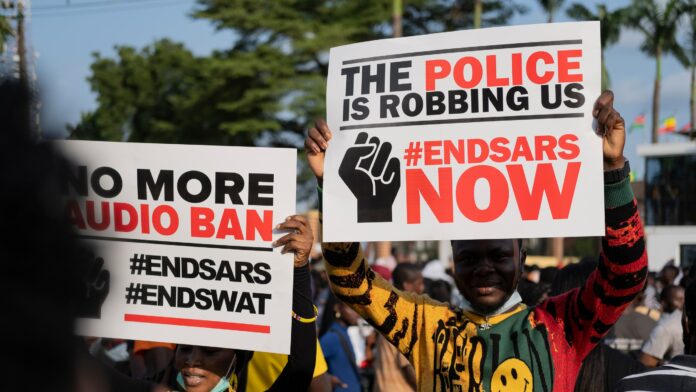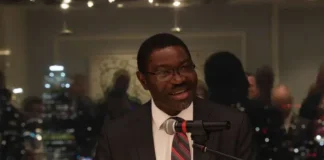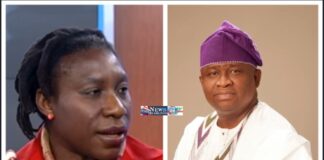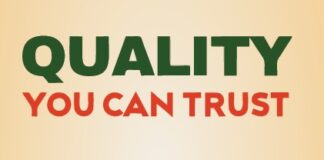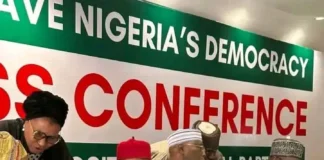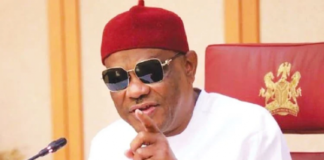Social media has undergone a remarkable transformation in recent decades, evolving into a formidable weapon for driving social change and advocating for justice. What began as a platform for connecting with friends and fostering online communities has grown into a powerful tool wielded by individuals and groups across Nigeria.
They use it to voice their concerns, demand change, and create a community of like-minded individuals dedicated to building a safe, just, and equitable Nigerian society.
Throughout history, activism has been the driving force behind numerous societal transformations. From the iconic figures of Martin Luther King Jr., Nelson Mandela, and Mahatma Gandhi to the tireless efforts of Eleanor Roosevelt, Desmond Tutu, and many more, history has shown us their persistent struggle for change. Bringing it home to Nigeria, prominent figures like Nnamdi Azikiwe, Funmilayo Ransom-Kuti, Fela Anikulapo-Kuti, Aminu Kano, Anthony Enahoro, and Chinua Achebe have all played crucial roles in reshaping the country’s political, economic, and social landscape.
However, a common thread in many activist movements, both in Nigeria and globally, has been the prevalence of violence and loss of life, which ultimately paved the way for the privileges we enjoy today. Thankfully, the advent of social media has introduced a new dimension to activism, enabling users to advocate for social justice, combat corruption, and address disparities through peaceful means. Prominent social movements like #BlackLivesMatter, #MeToo, #TimesUp, #BringBackOurGirls, and #EndSARS have harnessed the power of online communities to drive social change, hold government agencies accountable, and strive for a better world.
Sadly, as with any double-edged sword, the rise of social media activism also comes with its scary, dark downside characterized by misinformation, cyberbullying, cancel culture, racial/ethnic clashes, and many more which potentially pose the risk of causing a lot more damage to individuals than we can imagine. More importantly, the lack of control and unchecked freedom given to most social media users calls for the urgent need to examine and address the multifaceted landscape of social media activism among Nigerian Youths, with a specific focus on the Good, Bad, and The ugly.
The following sections critically examine these three dimensions to unravel the transformative potential, pitfalls, and dangers of social media activism. Read on to explore these complexities and potential solutions for leveraging social media activism to drive meaningful social change.
Social Media Activism: The Good – Amplifying Voices and Driving Social Change
Social media has emerged as a powerful tool for individuals and groups to raise awareness about critical societal issues, garner support, connect with like-minded individuals, and advocate for much-needed reforms. Initially designed for social connections, the surge in crime, corruption, injustice, and societal ills in Nigeria and worldwide heralded the use of social media for advocating social change- a term widely referred to as social media activism.
This form of activism, as described by Maryville University, harnesses social media platforms to amplify voices, share stories, raise awareness, and build and strengthen connections to demand justice. What began with simple acts like tweeting and retweeting soon transformed into a global social revolution that reverberated across the globe.
Starting with the #ArabSpring movement in Tunisia in the early 2010s. Many young protesters took to the streets, leveraging social media to challenge oppressive regimes and poor living conditions. This movement quickly spread through North Africa and the Middle East, not only advocating for change within its geographical bounds but also fostering global awareness and consciousness on these issues.
Similarly, the #BlackLivesMatter movement drew worldwide attention in the wake of George Floyd’s tragic murder. It united the global Black diaspora, inspiring BLM protests across the globe, and demanding an end to anti-Black racism and police brutality using the powerful #BlackLivesMatter hashtag. One of the most significant social media movements to date, the Pew Research Center reported that the hashtag #BlackLivesMatter was used about 30 million times on Twitter, averaging 17,002 times daily from July 2013 to May 1, 2018.
This transformative potential of social media activism has awakened many Nigerian youths to harness the power of hashtags, viral campaigns, and digital storytelling in advocating for positive change within Nigerian society and beyond. As a result, this section explores the three positive ways Nigerian youths are harnessing social media activism for change:
- Hashtag Promotion:
In Nigeria’s social media landscape, influential hashtags like #BringBackOurGirls and #EndSARS gained immense traction, drawing global attention to critical issues. #BringBackOurGirls, which raised awareness about the 2014 kidnapping of 276 Chibok schoolgirls by Boko Haram, received a staggering 306,561 tweets per user, with nearly two million total tweets. Similarly, the recent #EndSARS movement, centered around “Soro Soke” (meaning “speak up” in Yoruba), highlighted police brutality and SARS-related issues, accumulating 48 million mentions. This movement prompted President Buhari’s actions to dissolve the terror SARS.
- Amplifying Marginalized Voices:
Social media activism provides a vital platform for oppressed voices seeking justice and societal change. Empowered by hashtags, Nigerian youths raise awareness about the mistreatment of marginalized individuals. A prime example is the case of Nigerian artist Mohbad, whose tragic death following several videos of his harassment ignited the #JusticeforMohbad #JusticeforImole movement. This ongoing initiative has not only captured global attention but also mobilized protests among his supporters worldwide, compelling responses from the Nigerian Police Force and numerous human rights organizations.
- Driving Civic Engagement and Community Support:
Social media activism plays a pivotal role in promoting civic engagement, including voter registration and participation in elections. These movements motivate Nigerian youth to actively partake in the democratic process, transforming them from passive observers into active agents of change.
Social Media Activism: The Bad – Challenges and Pitfalls
While social media activism brings numerous advantages to the table, it also ushers in potential pitfalls and difficulties that can disrupt social cohesion. I have identified three notable downsides associated with social media activism among Nigerian youths:
- Dissemination of Fake News and Misinformation:
The propagation of false narratives and misinformation on social media has long been a significant issue. Deliberate dissemination of misleading information can sow discord, confusion, and division among youths. A prime example is the “Lagos Is No Man’s Land” narrative on Twitter, which triggered tensions between Yorubas and Igbos during an election period. This division had a detrimental impact on the election outcome, escalating tensions and, in some areas, leading to violence.
- Selective and Vigilante Justice:
Another pitfall of social media activism is its tendency to focus selectively on specific social issues while overlooking others. For example, when the case of Mohbad’s death gained attention on Twitter, his fans and supporters passionately advocated for justice. However, the notable silence of influential celebrity colleagues, despite the artist’s vocalized challenges before his untimely demise, raises questions that need to be addressed. Vigilante justice is another significant concern. Hastily passing judgments on unresolved matters can lead to severe societal issues, including the unwarranted shaming and harassment of innocent individuals. While it may help identify wrongdoers, it often leads to hasty assumptions and accusations without proper investigations, creating more problems than expected.
- Short Attention Span:
Social media activism grapples with the fast-paced nature of online platforms and the short attention span of users. This can lead many youths to quickly move on to other issues without addressing the deeper, long-term societal problems. For example, despite the disbandment of the SARS unit by the Nigerian government in response to the #EndSARS movement, most of these officials have been relocated to other police departments, allowing the fundamental issues to persist, even when temporary solutions are offered.
Social Media Activism: The Ugly – Threats, Harassment, and Government Crackdowns
While exploring the various facets of social media activism, it’s equally essential to assess its darker side characterized by government threats, harassment, and official crackdowns. Nigerian youth have actively engaged in social media activism, yet they face constant government targeting and harassment, often resulting in a relentless cycle of cyberbullying, threats, and, in extreme cases, physical harm. In addition to cyberbullying and online threats, a particularly troubling aspect of social media activism in Nigeria is the relentless confrontation and targeting by the government.
This ugly reality of social media activism was evident during the EndSARS protests, with reports of physical attacks on protesters, drawing international attention and concern in 2020. Furthermore, the government’s attempts to pass social media bills restricting freedom of information and expression on social media represent another form of government crackdown on these platforms. This constant harassment, infringement of rights, and disregard for freedom of expression raise pressing questions about democracy and free expression in the digital age.
Despite these persistent challenges, recent developments in Nigerian youth-led social media activism demonstrate their unwavering determination to push forward despite the adversities. Their courage and resilience are the driving forces behind their use of social media to drive change in Nigeria. Nevertheless, this harsh reality serves as a poignant reminder that change often comes at a significant cost, and many Nigerian youths are now more prepared than ever to pay that price to usher in a new Nigeria.
The Bottom Line
While social media has undoubtedly facilitated a more connected and fast-paced platform for like-minded individuals from diverse backgrounds to come together and demand change, it does not guarantee the absence of the age-old challenges and life-threatening obstacles that have been intrinsic to activism. By delving into the good, bad, and ugly aspects of social media activism in Nigeria, I have dissected the intricate dynamics of using this medium for social change in our nation.
Examining the positive side reveals the transformative potential of social media in driving substantial change and progress in Nigeria. It underscores how these platforms can unite young people, mobilize change, and address critical issues. On the other hand, the challenges of misinformation, selective justice, and short attention spans continue to hinder the success of these movements, potentially causing more harm than good. Finally, the “ugly” reflects the stark dangers and harsh reality of engaging in social media activism in Nigerian society.
As we navigate social media activism in a country like ours, it is crucial to acknowledge these complexities and improve our strategies. This includes promoting media literacy and critical thinking to help users fact-check and distinguish reliable information from misinformation. Secondly, we must also encourage more youth-led initiatives and podcasts that raise awareness about critical issues online, creating a safer and more trustworthy digital space. Finally, developing youth engagement programs is vital to foster civil discourse, encourage political participation, and advocate for government reform.
In conclusion, despite the drawbacks of social media, we cannot underestimate its potential to bring positive change to Nigeria. Recent social movements have shown that Nigerian youths are at the forefront of this transformation, demonstrating unwavering passion, determination, and resilience in their efforts to create a more just, equitable, and functional Nigeria.



